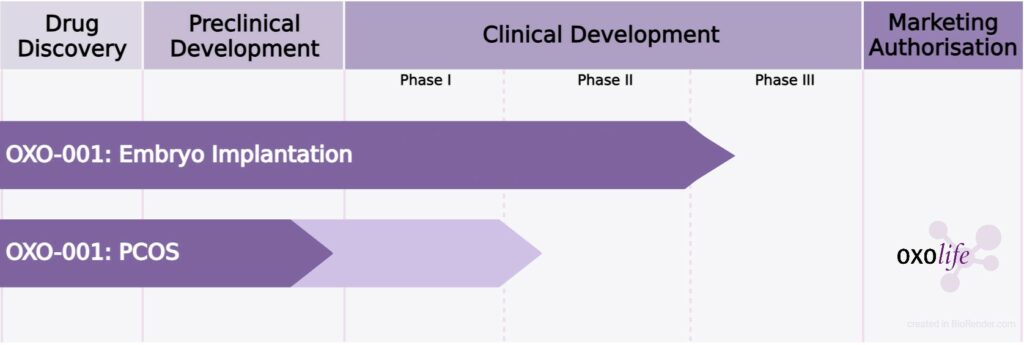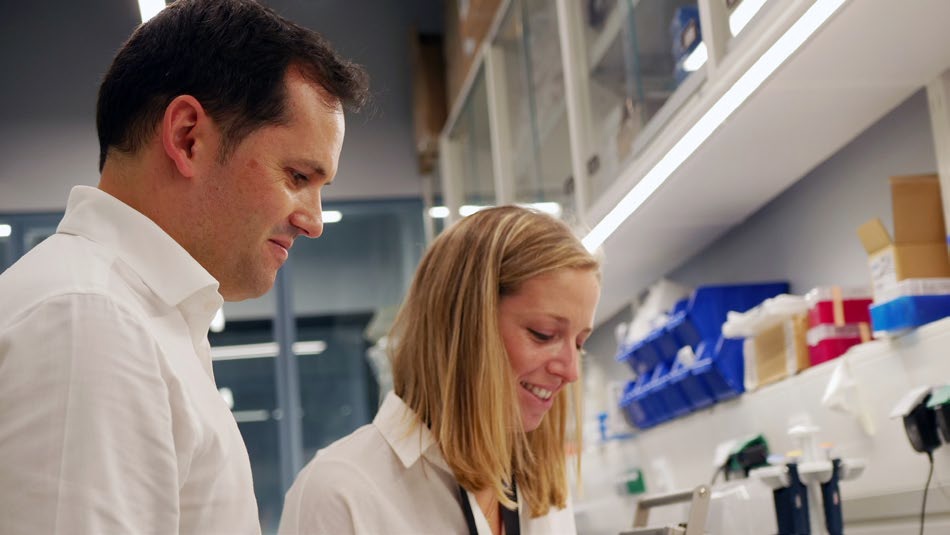
Embryo implantation
OXO-001: an innovative treatment that improves women’s fertility by enhancing embryo implantation
We are currently developing OXO-001, a first-in-class non-hormonal oral drug that acts directly on the endometrium to enhance and improve the embryo implantation process, a breakthrough innovation in reproductive medicine.
OXO-001 has demonstrated its effectiveness in increasing embryo implantation, pregnancy, and live birth rates among infertile women who are undergoing in vitro fertilization (IVF) or intracytoplasmic sperm injection (ICSI).
The development of OXO-001, a single-to-take oral pill, responds to the most relevant unmet medical need in infertility which affects millions of women undergoing assisted reproduction worldwide, since there is no alternative on the market to improve the embryo implantation process.
References: Arbat, A. et al. (2024). Efficacy results from the phase II randomized clinical trial: OXO-001 in infertile women undergoing egg donation IVF/ICSI. Human Reproduction. Available at: https://academic.oup.com/humrep/issue/39/Supplement_1
Polycystic ovary syndrome
OXO-001: an innovative approach to PCOS infertility treatment
Another research with OXO-001 is an innovative approach to PCOS infertility treatment. Previous preclinical studies performed have shown OXO-001 is capable of recovering ovulation and fertility in an animal model with PCOS characteristics, and we are currently in late stages of the pre-clinical development for this condition.
In order to obtain more information about the mechanism of action of OXO-001 and its potential use as a treatment for infertility associated with PCOS, we have recently initiated a collaboration with the University of Cordoba (UCO) and the Maimonides Institute for Biomedical Research (IMIBIC), and with Rutgers, The State University of New Jersey.

